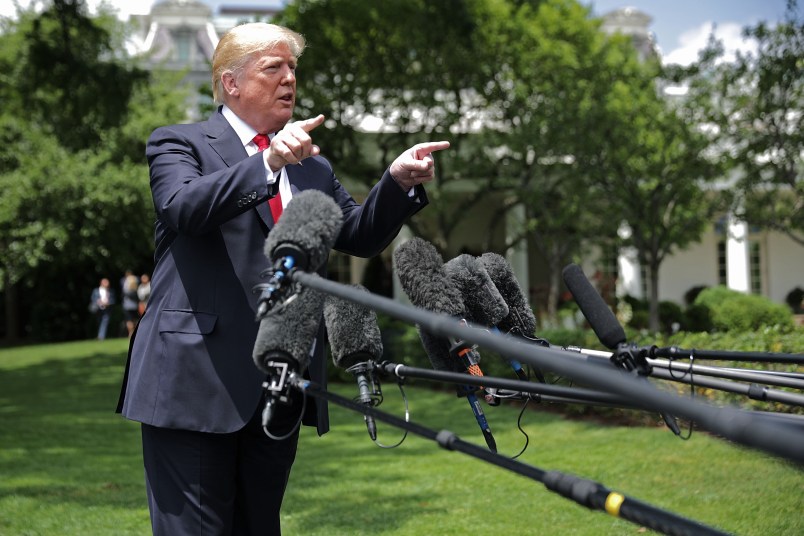The Trump administration unveiled a set of executive orders late Friday afternoon aimed at weakening unions that represent federal workers and making it easier for agencies across the government to fire their employees.
Senior administration officials told reporters on a call Friday afternoon that the executive orders will do the following:
- Shorten the length of time federal workers have to improve their performance after receiving a bad review, from 120 days to just 30.
- Encourage federal agencies to terminate poor performers rather than suspending them.
- Direct federal agencies to renegotiate their union contracts, and make those contracts publicly available online “so American people can see them.”
- Encouraging agencies to conclude labor negotiations in less than a year.
- Severely restrict the use of federal worker unions’ “official time” — which elected shop stewards currently use to mediate workplace grievances. Going forward, federal workers can spend no more that 25 percent of their time on union or other non-agency business.
- Charge unions rent for the use of federal office space for that “official time” work.
Andrew Bremberg, the director of Trump’s Domestic Policy Council, said the changes would “advance merit system principles and accountability” and “make it easier for agencies to remove poor performing employees and ensure taxpayer dollars are more efficiently used.” He and other White House officials claimed the rule changes would save taxpayers at least $100 million each year.
But Jacque Simon, the political director of American Federation of Government Employees (AFGE), warned that the new rules weaken the ability of federal workers to protect themselves from politicized employment decisions.
“When you do this, you open the door to a situation where, if you don’t toe the party line, you’re out the door,” she told TPM. “Ultimately, these agencies are run by political appointees, and if employees don’t have these rights and the opportunity to defend themselves, then anybody is at risk who is questioning the administration’s denial of climate change, or the health benefits of a particular drug, whatever the hell else these people come up with next.”
Citing an uptick in reports of politically-motivated firings and reassignments at the State Department, Interior Department, Environmental Protection Agency and other federal offices, Simon said the new executive orders will make it easier for managers to make decisions based on “political loyalty.”
“Do you want scientists at the EPA who are providing objective data and information about the air we breathe or do we want political hacks?” she asked. “If you’re not with the program, if you’re not cooperating with the political agenda, you’re out the door. Out you go.”
Back in April, Trump’s OPM director promised a “full court press” on civil service reforms, telling reporters: “We have certain outdated things that we need to take a look at.” He said his priority was “making sure agencies have more flexibilities, and if I can’t do it at an agency level then I’ll do it at an occupational level.”
Friday’s executive orders are seen as an opening salvo, and more rule changes are expected in the months ahead.







These rules can be fixed when a Democrat is in office. But, until then, we’re going to lose a lot of talented, experienced people from a lot of important federal jobs.
Do these changes apply to political appointees and managers, too?
(I know … I know)
Lots of smoke, considering there’s only one federal worker that Fat Nixon desperately wants to fire. I don’t want to mention names, but his initials are Robert S. Mueller III.
Guess who works for the federal gov’t. Guess.
Yep.
Lots of THEM.
Guess who THEM tends to vote for.
Yep.
DEMS.
So yes, this serves a dual purpose: they will now begin The Purge, targeting “suspected Democrats” (yes, that’s a euphemism) for false bad reviews and harassment that runs them out of their jobs.
Day of the White Knives?
From a clown who never had to worry about a performance review in his life. A person who failed upward his whole life. That makes this particularly disgusting.
President Donald Trump welcomes you to the Gilded Age II.